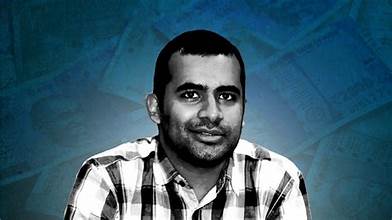


In a critical administering, the Preeminent Court of India has allowed safeguard to Vijay Nair, the communications-in-charge of the Aam Aadmi Party (AAP), who is blamed within the high-profile cash washing case associated to the Delhi extract arrangement trick. The case, which has earned far reaching consideration, too involves a few other unmistakable pioneers, counting previous Delhi Agent Chief Serve Manish Sisodia and BRS pioneer K Kavitha, both of whom have as of now been allowed safeguard by the Preeminent Court.
Background of the Case
Vijay Nair has been beneath examination by the Authorization Directorate (ED) for his charged inclusion within the Delhi extract approach scam. The trick rotates around charges that authorities within the Delhi government, in conniving with certain dealers, controlled the extract approach to allow profitable alcohol licenses in trade for bribes. It is affirmed that the benefit edges were changed to advantage particular dealers, with kickbacks summing to ₹100 crore being funneled to Nair by a 'South group' alcohol campaign.
Nair, who had as of now secured safeguard within the Central Bureau of Examination (CBI) case in November 2022, was denied safeguard by the Delhi Tall Court within the ED case final year. This provoked him to approach the Incomparable Court, where his supplication was at last listened and chosen upon.
Supreme Court’s Ruling
A Bench comprising Justices Hrishikesh Roy and SVN Bhatti delivered the verdict on September 2, 2024, granting bail to Nair. The Court observed that the ED had failed to complete the trial on time despite earlier assurances that the trial would be concluded within six to eight months. The bench pointed out that the prosecution plans to examine around 350 witnesses, a task that has yet to commence.
The Court stated:
"When the case of Manish Sisodia was taken by this court, the assurance was given by ED that trial would be concluded within 6 to 8 months but as can be seen that trial is yet to commence. While assurance was given by ED on 30/10/23 on early conclusion of trial within 6 to 8 months, it is seen that as many as 40 persons have been arrayed as accused. The prosecution seeks to examine around 350 witnesses."
Contextual Considerations
The Court took into account the bail orders previously granted to Manish Sisodia and K Kavitha, noting the importance of the right to a speedy trial:
"We have perused the reasoning the judgment granting bail to Manish Sisodia. In the said proceedings, the court had reiterated right of an accused to speedy trial under Article 21 and also the fact that the fundamental rights guaranteed under Article 21 cannot be subjugated to statutory power under PMLA."
Given these precedents, the Supreme Court ordered that Nair be released on bail under the same conditions that were applied to Sisodia and Kavitha.
Legal Arguments and Implications
In the courtroom, Senior Advocate Abhishek Manu Singhvi, who was representing Nair, stated that Nair had been in custody for 23 months. Singhvi argued that since the maximum sentence under Sections 3 and 4 of the PMLA was seven years, keeping Nair detained for a longer period was not fair. He highlighted the idea that "bail should be the norm and jail should be the exception," a sentiment echoed by the Court in its decision.
Opposing the bail, Additional Solicitor General SV Raju, representing the ED, argued against it due to the tough criteria for granting bail according to Section 45 of the PMLA. Nevertheless, the Court deemed these reasons inadequate to reject bail, particularly considering the trial's lack of advancement.
Summary
The Supreme Court's choice to release Vijay Nair on bail is another pivotal moment in the ongoing legal disputes arising from the Delhi excise policy scandal. The Court has emphasized that extended pre-trial detention should not be seen as a punishment, highlighting the significance of the right to freedom and a swift trial, even within the strict guidelines of the PMLA.
As Nair is now released on bail, attention will focus on how the trial unfolds and the legal tactics used by both sides in court. This decision establishes a standard for future cases in which the need to uphold strict legal regulations is weighed against safeguarding fundamental rights.
TAGS: Supreme Court Vijay Nair bail Delhi excise policy scam Aam Aadmi Party Enforcement Directorate (ED) money laundering PMLA Article 21 right to liberty Manish Sisodia K Kavitha prolonged detention speedy trial legal precedent.